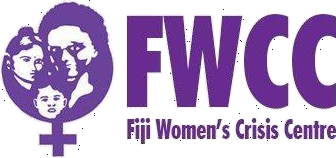Fanian Bamngin CHIEF of Police Yap: Domestic Violence Legislation Will Help Improve Police Response
9 Feb, 2018
[GUAM Feb 09 2018] While there is no legislation in Yap to provide protection for victims and survivors of domestic violence, reports of domestic violence is made at the police station and the Attorney Generals’s office nonetheless.
Chief of Police, Fanian Bamngin has been with the police force for more than thirty years and has been in the position of chief for the last five years. Bamngin says that it is common practice for families to deal with domestic violence cases amongst themselves and it is uncommon for victims to move out of that practice to report the matter to the police, “victims will undergo several incidences of domestic violence until they finally seek assistance from the police and most times it is not until they require medical assistance at the hospital that they seek police services,” says Bamngin.
There are currently 42 police officers on the island of Yap and none of them are female. A study undertaken in 2011, recorded in the Hawai’i Journal of Medicine and Public Health, noted that out of 194 women surveyed in Yap, 148 (76%) reported that they have experienced at least one form of abuse during their intimate partner relationship.
There is still a long way to go in terms of gender equality and accepting women’s human rights in Yap. Calisio Rawel, a Captain with the Yap Police, says that when there is a report of domestic violence the charges are made under assault and battery, “and we all know this means that the victim herself must make a complaint and if she doesn’t then we have no case and we can’t press charges,” says Rawel. Undergoing training on gender this week has helped Rawel understand why women do not report and thinks that it is critical that all police undergo such training.
Bamngin believes that having legislation in place will assist hugely with police being able to act more proactively and where victims and survivors of violence will have more confidence to report, “I have been listening to what is happening in other states and in other pacific island countries and what has become clear to me is that specific laws on domestic violence is a big help and can contribute to improving police response in the area of domestic violence,” said Bamngin.
While there is no specific women’s group or non-government organisation who deals with domestic violence on the island, Bamngin says that they work closely with a local female municipal officer to assist with their domestic violence cases, “but it would be good to see a women’s group specifically providing support in this area especially in counselling because right now we have no female police officers and so that itself could discourage women from coming forward to report”.
Bamngin and Rawel are both attending the Australian Federal Police (AFP) and the Fiji Women’s Crisis Centre (FWCC) Gender and Human Rights Training for Senior Executive Level Police Officers from the Micronesian region in Guam [ENDS]
